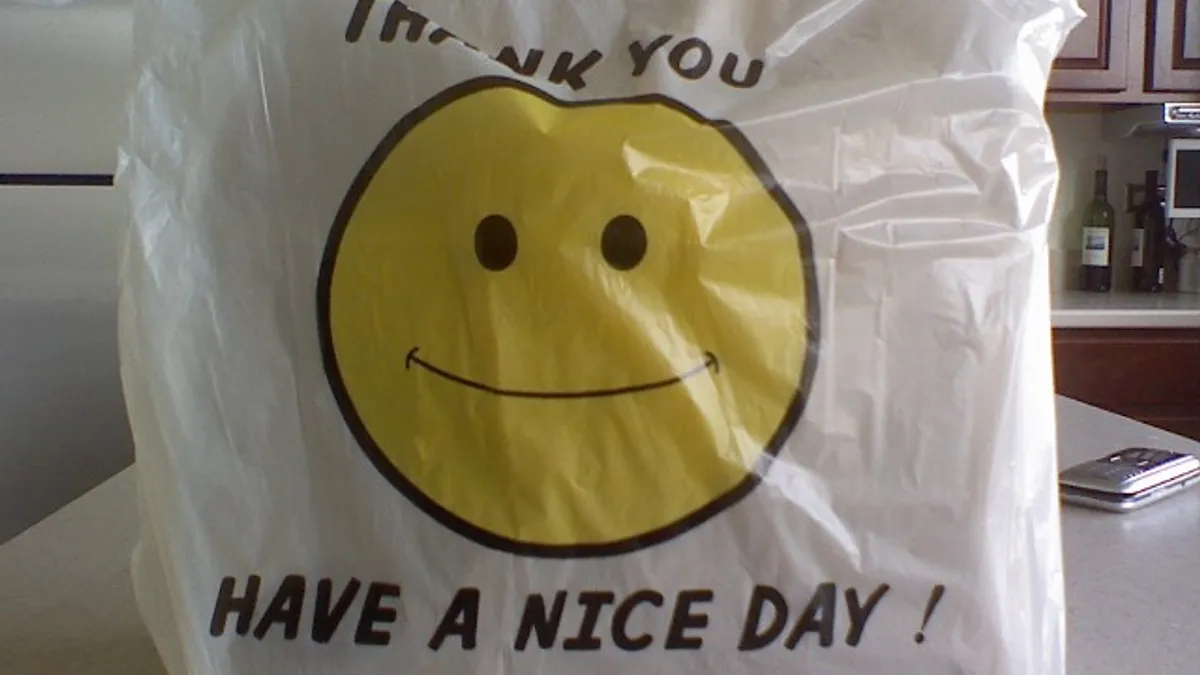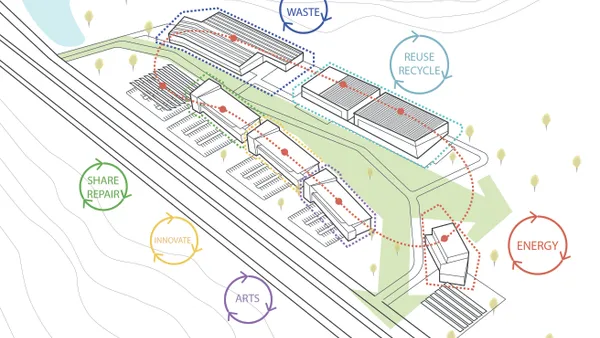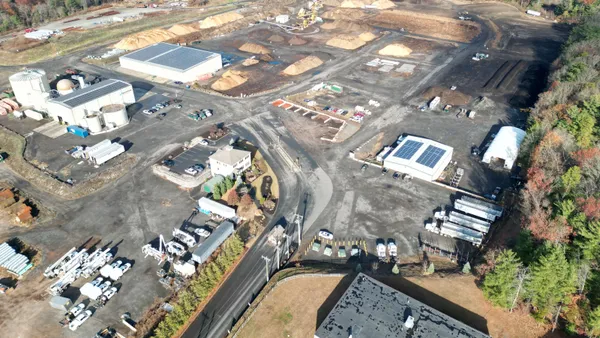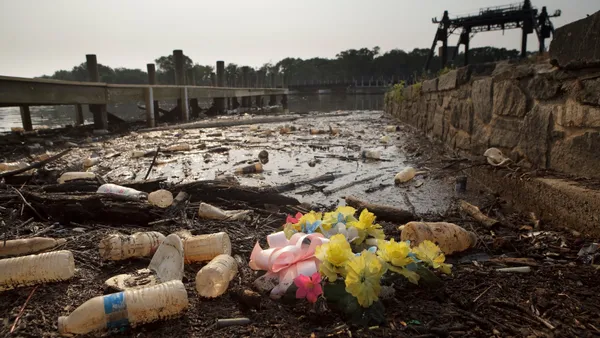Dive Brief:
- Plastic bag manufacturers are spending big ahead of two statewide referendums in California. As reported by Resource Recycling, the American Progressive Bag Alliance (APBA) has raised $6.1 million in opposition to a statewide ban. Hilex Poly, Formosa Plastics Corp., Advance Polybag and Superbag Corp. were among the top contributors.
- California vs. Big Plastic, one of the main committees in support of a ban, has raised about $1.4 million. Their biggest donors were grocery company Albertsons Safeway and the California Grocers Association, along with a number of environmental groups.
- The state currently has 150 jurisdictions with some form of bag ban. None of these would be affected if the statewide ban is overturned.
Dive Insight:
APBA began gathering signatures to repeal the statewide ban soon after Governor Jerry Brown signed it into law in 2014. It successfully got two propositions on the November ballot for this year — one to repeal the ban and another to require all fees go to an environmental fund if the ban is upheld. The issue of whether grocery stores are profiting from fees has been a key point of contention and ordinances have taken a variety of approaches to it across the country.
APBA and its supporters have been very active on this front by trying to stop state and city bans, or in some cases enact preliminary bans against bans. Ban supporters point to major usage reductions in places such as England, Seattle and Cambridge, MA as a sign that people can live without the bags. Manufacturers have launched initiatives such as the Wrap Action Recycling Program in multiple states to promote their recyclability.
With New York's bag ordinance temporarily delayed, California has become one of the most high profile fronts in the bag war once again. Critics of the industry's repeal efforts have noted that voters will have 17 different propositions to decide on at the ballot box this fall which may make it hard for their messaging to get through regardless of funding. The APBA has recognized that costs will be high, but seems unlikely to back down now.














